For thousands of years, people have laughed at jokes.
The adage "the best ones are the old ones" isn't always accurate. However, some of history's oldest jokes are still used today. What makes a joke funny? To discover out, you'll have to go back a few thousand years.
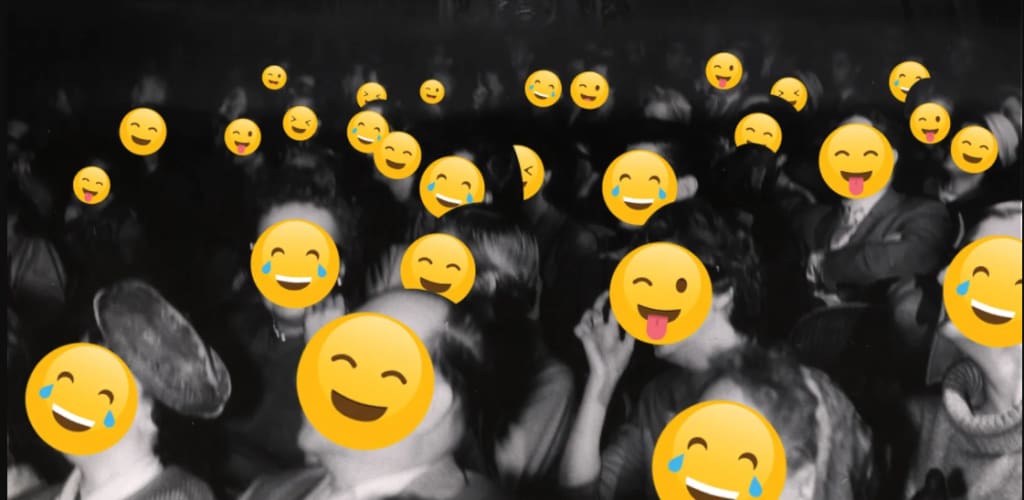
Martha Bayless found an unexpected finding while researching medieval literature for her Ph.D. She was studying some of the earliest Latin jokes written by Catholic professors (some in excess of 1,000 years old). Even if few had previously been translated into English, many of them were nevertheless amusing — and some even made her laugh out loud.
Bayless was reading a copy of Truly Tasteless Jokes 3 — a renowned joke anthology from 1983 – while waiting for her train shortly after. She was shocked to find a joke she had been copying just a day before, virtually word for word.
The joke meets true to the book's premise of being "really disgusting." In its 1,000-year-old version, it begins like this: Two men were walking down a street, chatting about various topics. "What do you think?" one of them asks. "Is it more enjoyable to defecate or have sex?"
Before coming up with a solution, the other man mulls over the question. I'll spare you the details because they're a little obscene by today's standards, but it entailed consulting a sex worker.
It occurred to Bayless that the joke had continued to be passed down through a spoken culture of joke-telling, from the Latin text to her current joke book, without needing to be written down for centuries.
Even though it is vulgar by today's standards, there is certainly something about this joke that has maintained it in usage to this day. But what is it that continues to pique the interest of audiences across the centuries? Will some modern jokes continue to be amusing for thousands of years? As a BBC Radio 4 comedy writer, I was curious to learn more.
Even the oldest written jokes appear to have recognizable elements. In 2016, National Public Radio (NPR) in the United States claimed that the oldest known joke comes from Bronze Age Sumeria (an early Mesopotamian civilization dating 3300-1200BC). The joke goes like this: "What hasn't happened since the dawn of time? There has never been a case of a young wife farting on her husband's lap."
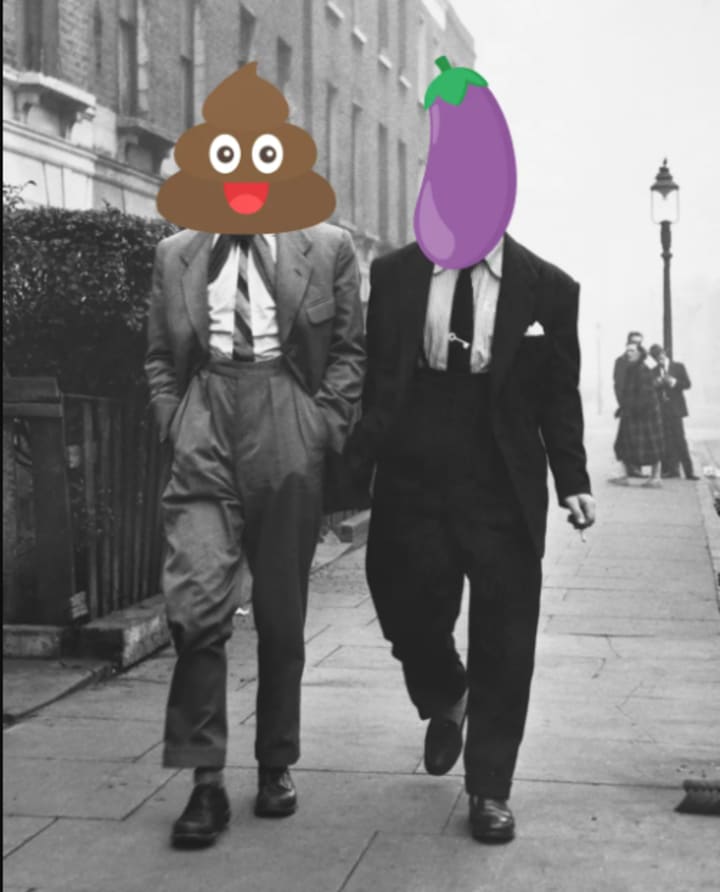
Needless to say, this joke would not be a hit in today's comedy clubs. The fact that the first documented joke is about toilet humour is striking. The humorous obsession with the crass, bodily, and downright scatological isn't a new trend in comedy; it's been there for centuries.
Bayless, who is now the director of folklore and public culture at the University of Oregon, is the author of several early humor books. "She says," she says "Dirty jokes were the first jokes. People couldn't get enough of them."
Flatulence, for example, is amusing because it demonstrates our "uncontrollable physicality," according to Anu Korhonen, a cultural studies professor at Finland's University of Helsinki.
In an interview for the university journal, she says that the role of farts in early jokes was to express our shared humanity and equality of everyone. Everyone is affected by flatulence; no one can avoid it.
Belching at the table is considered highly disrespectful in several cultures. It could signify 'Thank you, it was a lovely meal' in other cultures - Peter McGraw
Some scholars believe that humor has an evolutionary purpose because it draws people together. Perhaps our capacity to laugh at ourselves helped us overcome adversity — by laughing together, we were able to strengthen our social relationships. Some researchers believe that the existence of teasing-like behaviors in primates such as chimps is proof of humor's early evolutionary origins in humans. Captive animals, on the other hand, may be imitating our actions.
However, not all crude jokes are universally accepted. According to Peter McGraw, a marketing and psychology professor at the University of Colorado Boulder, cultural norms differ so greatly that creating a universally hilarious joke is difficult. "Even belching has a cultural component," he explains. "Belching at the table is considered highly disrespectful in some cultures. You might giggle if your youngster does it because they don't know any better. It could also indicate 'Thank you, that was a lovely supper' in other cultures."
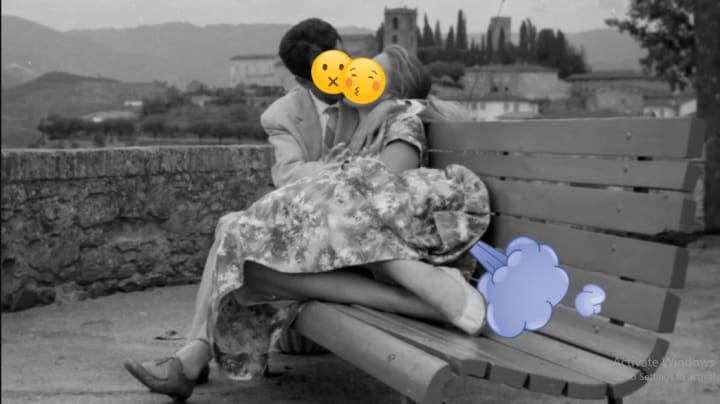
Many jokes in the medieval period were so obscene that they could have come from bawdy inns and other less savory parts of society. But, according to Bayless, this is not the case. "It used to be assumed that you had the official level of the [Catholic] Church, which was extremely effete and dignified, and individuals off in [ordinary society] making jokes – but when you delve deeper, you find that the significant people are also making jokes."
Many of the first written jokes were scribbled in the margins of the early Latin Bibles, according to Bayless. Early Church scholars were busy entertaining each other with smutty comments even in a culture where only academic and religious elites could read and write.
Jokes were a perilous business in the days of all-powerful medieval monarchs. Bayless tells the story of how an English king, Richard I, was offended by a joke. "The king was enraged and summoned two men who had been mocking him at a drunken feast. Clearly, the men were on the verge of disaster, but one of them responded, 'We might have said those things, but that was nothing compared to what we were going to say if the wine hadn't run out!'"
It was a tight call for the men, as "their destiny would have been severe indeed if they hadn't come up with such a funny rejoinder," according to Bayless.
Although being executed by an enraged monarch is less likely these days, reading the room is still a vital talent for a comic. Effective jokes, according to McGraw, are a "benign violation," always walking a fine line between too soft and too extreme. The goal of a benign breach is to evoke both amusement and disgust, which may explain why obscene subject matter appears so frequently.
"It explains the two ways a joke may go wrong," McGraw continues. "That is, it can be too innocent and dull, like a knock-knock joke for children. It could also be an excessive violation. It emphasizes how delicate joke-telling is because failing is simpler than succeeding." So, telling jokes is a serious job that necessitates a good ability for audience comprehension.
In fact, McGraw claims that raw intelligence is the most accurate measure of a person's ability to be amusing (of course, a comedy writer would say that – Ed.). Humour was a sign of good command of one's surroundings among our forefathers. These jokes were made in the setting of a bleak outlook on life and a hostile environment. But, as McGraw points out, "it's crucial to recognize how delightful it is to spend time with someone who is hilarious, since they have the capacity to help you better cope with the troubles of the world."
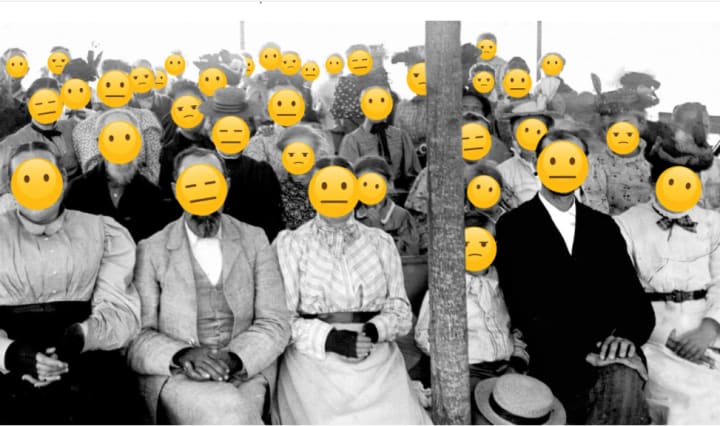
Jokes, for example, can help us subvert our emotional states. When dealing with challenging topics, a witty punchline might help us forget about our unpleasant emotions.
What about the current craze in humor about "cancel culture"? For McGraw, this isn't such a unique historical moment.
"This tendency has existed since the beginning of stand-up comedy," he explains. As the two jesters from Richard I's court indicate, comedy has always been dangerous, and the audience has always had the final say.
"What's incorrect and what's OK is determined not by the teller, but by the audience member, the receiver, and their mood, the setting they're in, the number of drinks they've had, their culture, and their identity," McGraw says.
If the audience holds the power, the comic faces a difficult task in pleasing them. Catherine Bohart, a stand-up comedian, is fully aware of the pressure. "The psychology of an audience is incredibly interesting because they are inclined to trust you if you seem fine," she explains. "However, if you're being vulnerable, they'll be able to detect your anxiousness and fragility."
It's a unique arrangement to have such a large audience for such a long time, and viewers expect value. Bohart is now on tour in the United Kingdom and Ireland, and she agrees with McGraw that, while there are common themes over thousands of years of comedy, no single piece of stand-up material succeeds 100% of the time. Stand-up comedy is dangerous because each time the comedian performs, he or she must win over a new audience.
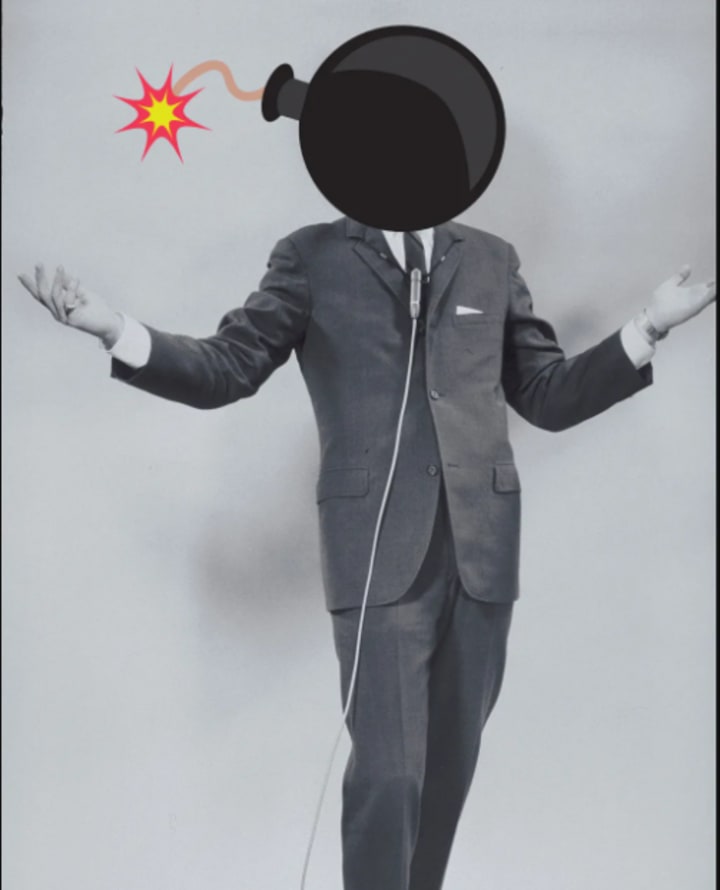
According to Bohart, audience laughter is complex. "The shock of the situation can make it difficult to chuckle. Death, mental health, and severe self-deprecation are all things we're not allowed to laugh at. People are often hesitant to laugh aloud."
In recent years, stand-up comedy has advanced at a breakneck pace. At the outset of the epidemic, Kylie Brakeman was one of the early adopters of a new style of observational humor. Her live-to-camera Twitter videos have racked up millions of viewers, ushering in a new era in which the events of the day may be mocked in minutes.
"It's absurd that we live in a world where daily television can't keep up," Brakeman adds. On the cutting edge of satire, online comedians are becoming more prominent. "You might jump on something that happened in the news right away. It's a benefit that online comedians enjoy. Even if you're writing for a late-night show, the joke has already been tweeted 17 times before the show airs."
A joke scribbled in the margins of a Latin text, which needs to remain humorous for the next scholar at whatever moment they happened across it, is nothing like this form of current comedy, which dates in minutes.
This increased production process brings with it a new set of risks. However, "bombing" online feels less devastating when millions of people are trapped behind a screen. According to Brakeman, "If people enjoy it, they will continue to enjoy it. And if they don't, it's because they're not actually thinking about it. Because it's just a case of receiving no likes on something, I don't think it's as serious as a bombing on stage."
Who knows what audiences thousands of years from now might think if they came across videos of today's comedians. Perhaps they will perceive today's cutting-edge comedy in the same light as the Mesopotamian fart joke: lacking in finer cultural elements but with basics that have stood the test of time.
About the Creator
Rashel
Rashel is an investigative journalist for Time, The Atlantic and other magazines.


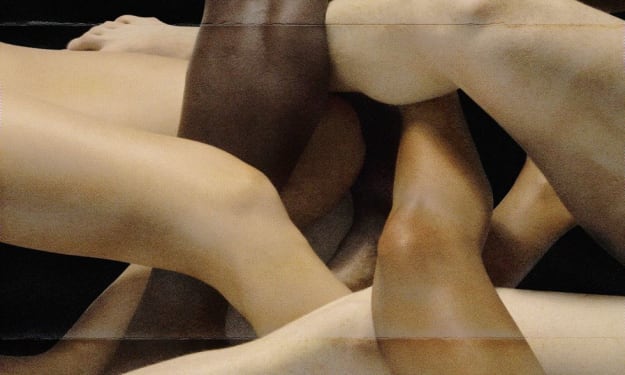



Comments
There are no comments for this story
Be the first to respond and start the conversation.